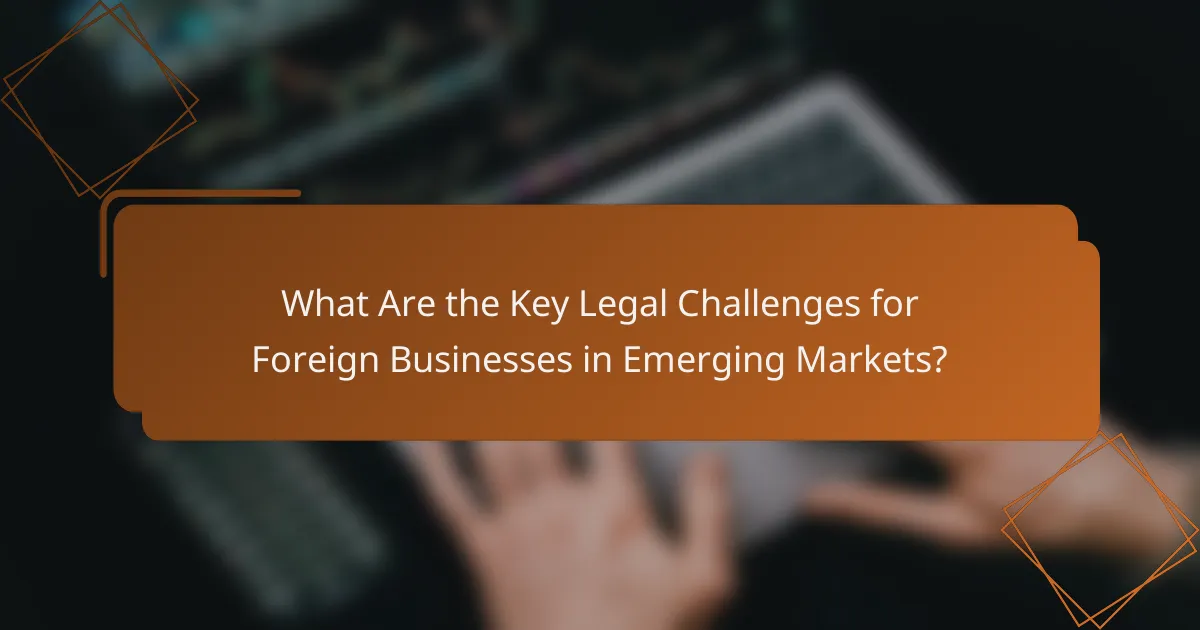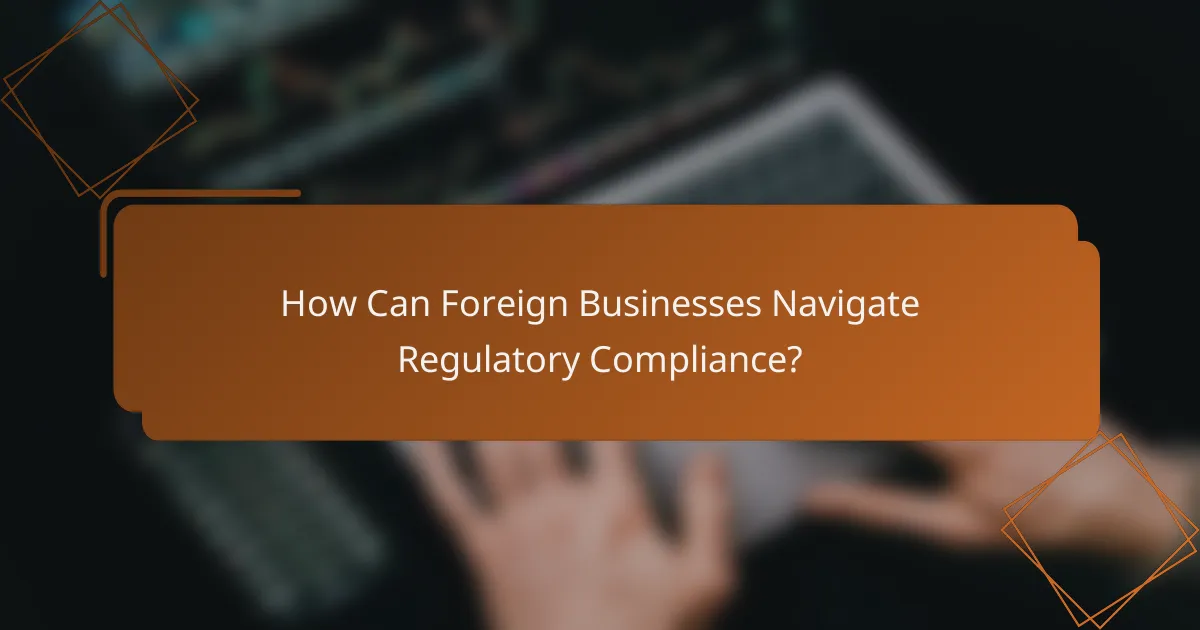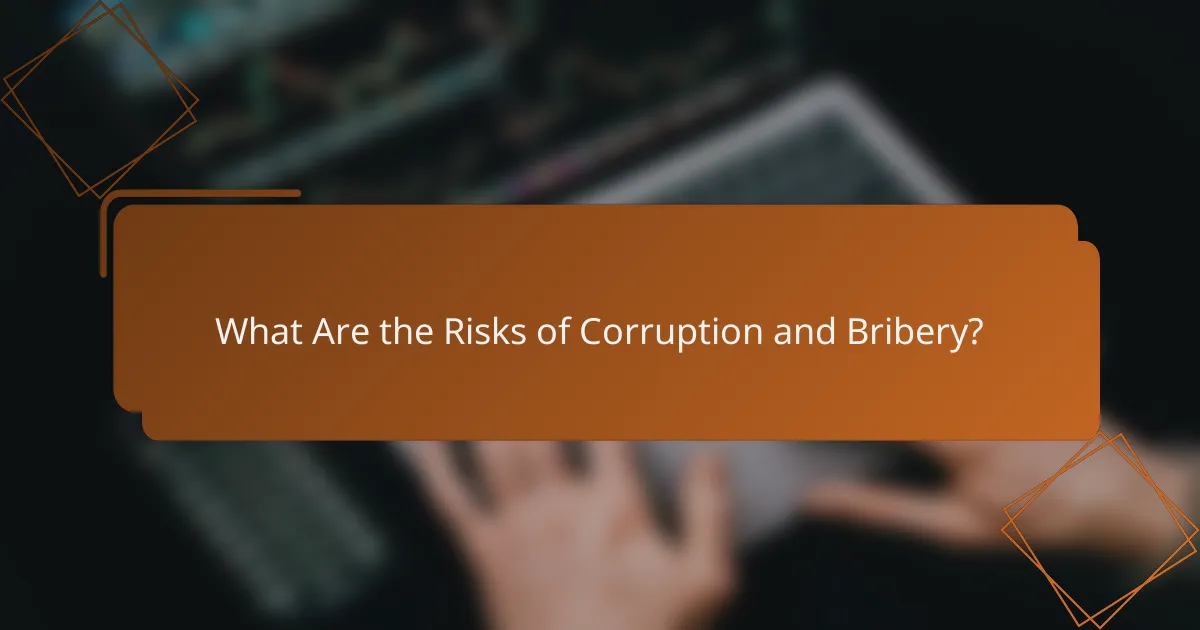As foreign businesses venture into emerging markets, they encounter a myriad of legal challenges that can significantly impact their operations. Key issues such as regulatory compliance, intellectual property protection, and contract enforcement require a thorough understanding of local laws and practices. By proactively addressing these challenges, companies can better navigate the complexities of the legal landscape and enhance their chances of success in these dynamic environments.

What Are the Key Legal Challenges for Foreign Businesses in Emerging Markets?
Foreign businesses face several key legal challenges in emerging markets, including regulatory compliance, intellectual property protection, contract enforcement, corruption risks, and dispute resolution mechanisms. Understanding these challenges is crucial for navigating the complex legal landscape and ensuring successful operations.
Regulatory Compliance Issues
Regulatory compliance issues can pose significant hurdles for foreign businesses in emerging markets. Companies must navigate a patchwork of local laws and regulations that can vary widely, often requiring extensive documentation and reporting. Failure to comply can result in fines, legal penalties, or even the suspension of operations.
To mitigate these risks, businesses should conduct thorough due diligence and engage local legal experts who understand the regulatory environment. Regular audits and compliance training for staff can also help ensure adherence to local laws.
Intellectual Property Protection
Intellectual property protection is often weak in emerging markets, making it challenging for foreign businesses to safeguard their innovations. Issues such as inadequate enforcement of IP laws and a lack of awareness among local authorities can lead to unauthorized use of trademarks, patents, and copyrights.
To protect their intellectual property, companies should consider registering their IP in the local jurisdiction and actively monitoring the market for infringements. Establishing strong relationships with local legal counsel can also aid in navigating the complexities of IP law in these regions.
Contract Enforcement Difficulties
Contract enforcement difficulties are common in emerging markets, where legal systems may be underdeveloped or inefficient. Foreign businesses may find it challenging to enforce contracts due to slow judicial processes or a lack of reliable legal precedents.
To address these challenges, companies should include clear dispute resolution clauses in contracts and consider alternative mechanisms such as arbitration. Engaging local legal experts can also provide insights into the enforceability of contracts in specific jurisdictions.
Corruption and Bribery Risks
Corruption and bribery risks are prevalent in many emerging markets, creating ethical and legal dilemmas for foreign businesses. Engaging in corrupt practices can lead to severe penalties, including fines and reputational damage.
To navigate these risks, companies should implement robust anti-corruption policies and conduct regular training for employees. Establishing a transparent reporting mechanism for unethical behavior can also foster a culture of integrity within the organization.
Dispute Resolution Mechanisms
Dispute resolution mechanisms can vary significantly across emerging markets, impacting how foreign businesses handle conflicts. Many jurisdictions may favor local parties, making it essential for foreign companies to understand the available options.
Businesses should consider incorporating international arbitration clauses in contracts, as these can provide a more neutral ground for resolving disputes. Familiarizing themselves with local legal practices and engaging experienced legal counsel can further enhance their ability to navigate disputes effectively.

How Can Foreign Businesses Navigate Regulatory Compliance?
Foreign businesses can navigate regulatory compliance in emerging markets by understanding local laws, engaging local legal experts, and conducting regular compliance audits. These steps help mitigate risks and ensure adherence to the legal framework of the host country.
Understanding Local Laws
To effectively navigate regulatory compliance, foreign businesses must first understand the local laws that govern their operations. This includes familiarizing themselves with regulations related to taxation, labor, environmental standards, and industry-specific requirements.
For instance, some countries may have stringent labor laws that dictate hiring practices or employee rights. Businesses should prioritize researching these regulations to avoid potential legal pitfalls and fines.
Engaging Local Legal Experts
Hiring local legal experts is crucial for foreign businesses to ensure compliance with the complex legal landscape in emerging markets. These professionals can provide insights into local customs, legal nuances, and regulatory changes that may impact business operations.
When selecting legal counsel, consider their experience in your specific industry and their understanding of both local and international regulations. This partnership can help navigate negotiations, contracts, and compliance issues effectively.
Regular Compliance Audits
Conducting regular compliance audits is essential for maintaining adherence to local laws and regulations. These audits help identify any gaps in compliance and allow businesses to address issues proactively before they escalate.
Establish a schedule for audits, ideally on an annual basis, and ensure that they cover all aspects of the business, including financial practices, employment policies, and operational procedures. This practice not only minimizes risks but also fosters a culture of accountability within the organization.

What Are Effective Strategies for Protecting Intellectual Property?
Effective strategies for protecting intellectual property (IP) in emerging markets include registering trademarks locally, utilizing non-disclosure agreements, and actively monitoring for infringements. These approaches help foreign businesses safeguard their innovations and brand identity against unauthorized use.
Registering Trademarks Locally
Registering trademarks locally is crucial for protecting your brand in emerging markets. Each country has its own trademark registration process, which often requires submitting an application to the relevant government authority and paying associated fees. It’s advisable to conduct a thorough search to ensure your trademark is not already in use.
Consider working with local legal experts who understand the nuances of the registration process and can navigate any potential challenges. Local registration not only provides legal protection but also enhances your brand’s credibility in the market.
Utilizing Non-Disclosure Agreements
Non-disclosure agreements (NDAs) are essential tools for protecting sensitive information when collaborating with local partners or employees. An NDA legally binds the parties to confidentiality, preventing them from sharing proprietary information with third parties. Ensure that the NDA clearly defines what constitutes confidential information and the duration of the obligation.
When drafting an NDA, consider local legal standards and practices, as these can vary significantly. A well-structured NDA can deter potential misuse of your intellectual property and provide legal recourse if breaches occur.
Monitoring Infringements
Monitoring for infringements is a proactive strategy to protect your intellectual property rights. Regularly check the market for unauthorized use of your trademarks or patents, which can include online searches and monitoring local trade shows. Establishing a system for tracking potential infringements can help you respond quickly.
Consider leveraging local legal resources or IP monitoring services that specialize in the region. Prompt action against infringements can prevent further damage and reinforce your commitment to protecting your intellectual property in the market.

How to Ensure Contract Enforcement in Emerging Markets?
To ensure contract enforcement in emerging markets, businesses should prioritize clear agreements, select appropriate jurisdictions, and incorporate dispute resolution mechanisms. Understanding local legal frameworks and leveraging local expertise can significantly enhance the likelihood of successful enforcement.
Choosing the Right Jurisdiction
Selecting the right jurisdiction is crucial for contract enforcement in emerging markets. Businesses should consider jurisdictions with established legal systems and a history of upholding contracts. Factors such as political stability, legal transparency, and the efficiency of the judiciary can influence this decision.
For example, jurisdictions like Singapore or Hong Kong are often preferred for their robust legal frameworks, while others may present higher risks. Conducting thorough research on local laws and regulations can help mitigate potential enforcement challenges.
Incorporating Arbitration Clauses
Including arbitration clauses in contracts can provide a more reliable means of dispute resolution in emerging markets. Arbitration is often favored due to its confidentiality, speed, and flexibility compared to traditional court systems. It allows parties to choose arbitrators with relevant expertise, which can lead to more favorable outcomes.
When drafting arbitration clauses, specify the governing rules and the location of arbitration. For instance, opting for international arbitration centers like the International Chamber of Commerce (ICC) can enhance enforceability across borders.
Utilizing Local Legal Resources
Engaging local legal resources is essential for navigating the complexities of contract enforcement in emerging markets. Local attorneys can provide insights into regional laws, cultural nuances, and potential pitfalls that foreign businesses may overlook. Their expertise can be invaluable in drafting contracts that comply with local regulations.
Additionally, consider partnering with local firms that have a strong reputation and established networks. This collaboration can facilitate smoother negotiations and enhance the overall effectiveness of contract enforcement efforts.

What Are the Risks of Corruption and Bribery?
The risks of corruption and bribery in emerging markets can significantly impact foreign businesses, leading to legal penalties, reputational damage, and financial losses. Understanding these risks is crucial for navigating complex regulatory environments and maintaining ethical standards.
Understanding Local Corruption Laws
Local corruption laws vary widely across emerging markets, often reflecting cultural norms and historical contexts. Businesses must familiarize themselves with specific regulations, such as the Foreign Corrupt Practices Act (FCPA) in the United States or the UK Bribery Act, which set stringent guidelines for international operations.
Failure to comply with these laws can result in severe penalties, including hefty fines and imprisonment for individuals involved. It is essential to consult local legal experts to ensure compliance with applicable laws and to understand the nuances of enforcement in each jurisdiction.
Implementing Anti-Bribery Policies
Establishing robust anti-bribery policies is vital for mitigating risks associated with corruption. These policies should outline clear guidelines on acceptable conduct, reporting mechanisms for unethical behavior, and consequences for violations.
Consider conducting a risk assessment to identify specific vulnerabilities within your operations. Tailor your policies to address these risks, and ensure they align with local laws and international standards. Regularly review and update these policies to adapt to changing legal landscapes.
Training Employees on Ethical Practices
Training employees on ethical practices is crucial for fostering a culture of integrity within the organization. Regular training sessions should cover local laws, company policies, and real-world scenarios that employees might encounter.
Utilize interactive methods such as workshops or role-playing to engage employees effectively. Providing resources, such as a code of conduct or an ethics hotline, can further empower staff to make informed decisions and report unethical behavior without fear of retaliation.

How to Choose the Right Dispute Resolution Mechanism?
Selecting the appropriate dispute resolution mechanism is crucial for foreign businesses operating in emerging markets. Factors such as the nature of the dispute, legal framework, and cultural considerations play a significant role in this decision-making process.
Understanding Different Mechanisms
Dispute resolution mechanisms typically include litigation, arbitration, and mediation. Litigation involves resolving disputes through the court system, while arbitration is a private process where an arbitrator makes a binding decision. Mediation is a collaborative approach where a neutral third party assists in reaching a mutually agreeable solution.
Each mechanism has its advantages and disadvantages. For instance, litigation can be lengthy and costly, while arbitration may offer more confidentiality and speed. Mediation can preserve business relationships but may not result in a binding agreement.
Factors to Consider
When choosing a dispute resolution mechanism, consider the legal environment of the emerging market. Some countries may favor arbitration due to their legal frameworks, while others may have a more robust court system. Additionally, assess the enforceability of decisions in the specific jurisdiction.
Other factors include the complexity of the dispute, the desired speed of resolution, and the potential impact on business relationships. For example, if maintaining a partnership is essential, mediation might be the best choice.
Practical Steps for Selection
Start by evaluating the nature of the dispute and the parties involved. Consult legal experts familiar with the local laws and practices to understand the implications of each mechanism. Create a checklist of priorities, such as cost, time, and confidentiality, to guide your decision.
It’s also beneficial to include dispute resolution clauses in contracts that specify the chosen mechanism and the governing law. This proactive approach can prevent misunderstandings and streamline the resolution process if disputes arise.
